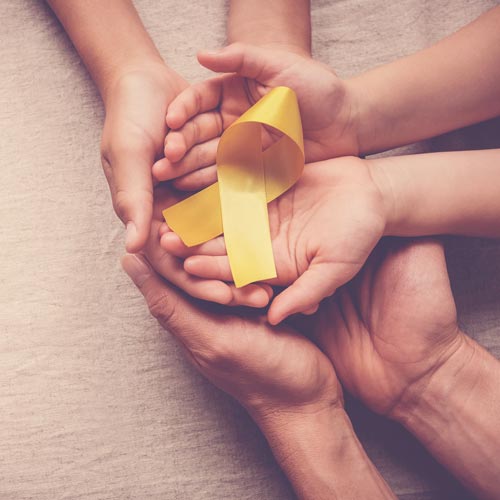Suicide Prevention Week

***Warning**This blog may contain sensitive material to some readers.***
In this week’s blog we are going to discuss a very sensitive subject—suicide. This is because September 7th through September 12th is National Suicide Prevention Week and September 10th is considered to be National Suicide Prevention Day. We are also going to be discussing this topic because it is important to raise our awareness and learn about ways to recognize suicidal behaviors. It is also important to educate ourselves on how to be sure that we are taking adequate care of our mental health because our mental health is just as important as our physical health.
Suicide is a public health issue and it is the 10th leading cause of death in the United States. While there is no complete suicide count, in the U.S. during 2019, there were 130 suicides a day with an estimated 1.38 million suicide attempts for the year. It is the second cause of death for individuals aged 10-34 years old. More than half of the U.S. population (54%) have been affected by suicide in some way. The suicide rate is highest in middle aged males and for veterans the suicide rate is 1.5 times higher than for non Veterans. While suicide may seem like it can be unpredictable, there are red flags that may signal if a person has suicidal intentions.
Some examples of these signs include:
- Depression
- Giving away cherished possessions
- Significant weight change
- Lack of motivation
- Intense sleeping habits
- A sudden change in personality, either euphoria or sadness
- Feeling of worthlessness and isolation
- Chronic pain
- Self harm
- Obsession with death or joking about their death
As horrifying as it sounds, suicide is becoming more prominent in today’s world. Just think about the recent suicide deaths of famous celebrities like Robin Williams, Chris Cornell, Kate Spade, and Anthony Bourdain. These celebrities seemed to have it all, so the question is why? Their deaths have opened up more conversations about suicide and just because someone may seem like they are happy, successful, and social, doesn’t necessarily mean that they are. Below the surface they may be full of anxiety, triggers, loneliness, and depression.
There are five things people can do if they think their loved one may attempt suicide.
- Ask them if they are thinking about killing themselves. I know this is not an easy question but it needs to be asked.
- Keep them safe from lethal objects and places.
- Be there for them. Listen carefully to what they are saying. Studies suggest that talking about suicide may actually decrease rather than increase suicidal thoughts.
- Help them connect with a mental health professional, local hospital, or one of the many suicide prevention organizations. (see below)
- Always stay connected. Being there for your loved one after a suicide attempt or discharge from care can make a huge difference and may help prevent future attempts.
As we know, everyone is different. That means everyone can have different triggers and responses. There are triggers that spark initial anxiety and depression and there are triggers that may cause reoccurring symptoms. Whatever the case may be, your triggers can be different from the next.
Below are a few examples of common triggers:
- Physical abuse
- Verbal abuse
- Sexual abuse
- Alcohol and/or drug abuse
- Overall trauma
Triggers do not have to be as intense as the ones above. Some people can have triggers such as:
- A certain smell
- A particular place
- A specific date
- Certain sounds or tastes
- Even just discussing a topic
It is important to discuss your triggers (if you possess any) with the people you surround yourself with. As it is also important for you to identify any triggers that other people may have. This is because if a trigger or event comes up in conversation, that can be the reason for an individual’s anxiety attack, emotional episode, or even a suicide attempt.
Suicide is never the answer. If you or someone you know is suffering with suicidal thoughts or actions be sure to seek help right away. There are a multitude of hotlines, organizations, and groups that can help you or someone you love. Below is a short list of contacts that can help you or assist you in finding the help that you may need:
- National Suicide Prevention Lifeline: 1-800-273-8255
- American Foundation for Suicide Prevention (AFSP)
- National Institute of Mental Health (NIMH)
- Society for the Prevention of Teen Suicide (SPTS)
- Action Alliance for Suicide Prevention
- Your local ER
As you can see, no matter how alone someone may feel, they are not. Many people are afraid to seek help in fear that they seem weak or will be judged, however that is never the case. There are people in this world that are put here to help others. Thousands of people reach out to these organizations daily in an effort to get the help they need. The mental health of an individual is just as important as their physical health. That being said, be sure to find time to take care of yourself. Life can be stressful, so find ways to manage that stress. Set aside a few minutes everyday to do something good for yourself. You can also set aside one day a week to pamper yourself and show your body and mind that it is okay to relax.
If you, or someone that you know, is struggling with suicidal thoughts do not hesitate to reach out for help. You can contact any of the organizations above or go to your local emergency room. There is always another option and someone there to listen.
